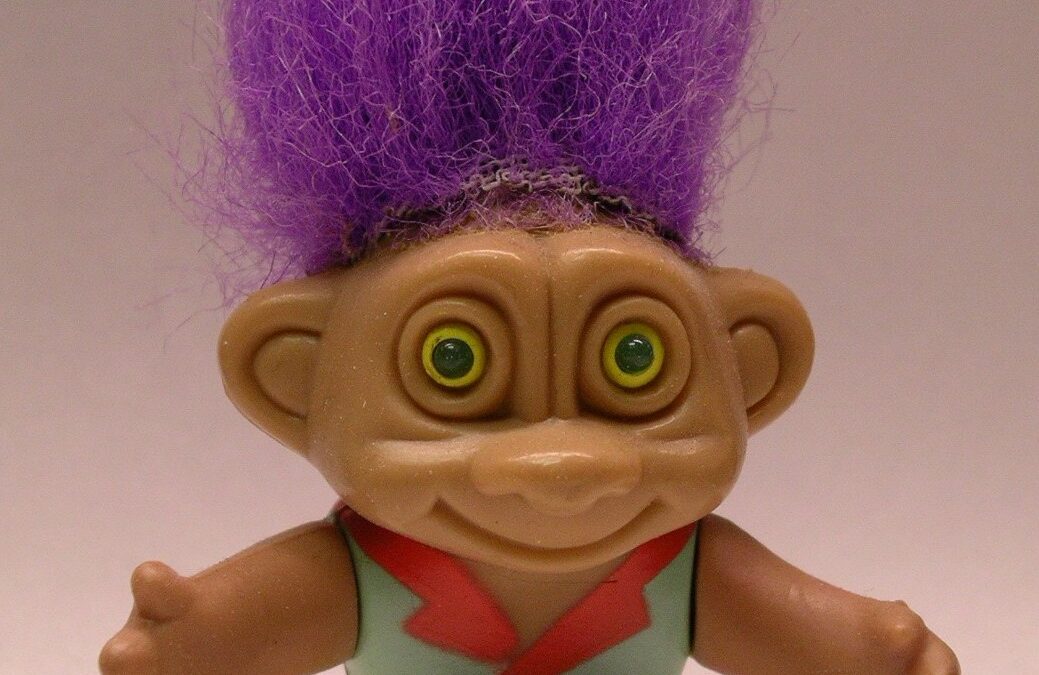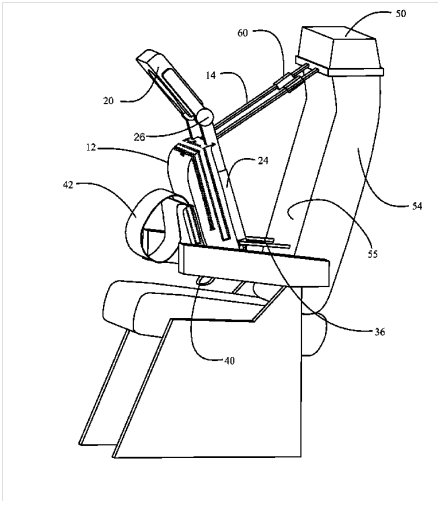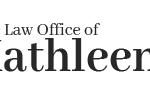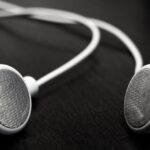
by Kathleen Lynch | Jul 20, 2015 | Patent
Patent trolls are a term used to a patent owner or licensee that seeks payment from companies allegedly infringing on the troll’s patent rights. Rather than fight the allegation, the company complies with the troll’s demands. The patent troll typically sends out multiple letters and thus may amass a considerable fortune.
Many companies are growing tired of the patent trolls and their seemingly unjust demands. To counter the trolls, many states have or are in the process of enacting anti-troll legislation. Florida, for example, recently passed a law that seemingly protects businesses from the demands of the patent trolls. The law enables a company to sue a patent troll for sending a letter in bad faith. The law includes a “loser pays” provision meaning that if the patent troll loses the action in court, they will need to pay the attorney’s fees for the opposing party as well as any damage award.
What’s the take away here? Well, patent troll legislation may be needed. However, the language and provisions need to be drafted in such a way that does not create more problems than the problems they are designed to fix.
Identifying, protecting and asserting your intellectual property rights is critical to any organization. Having the right person to help you through the process is important. The Law Office of Kathleen Lynch PLLC is designed to help businesses such as yours keep ahead of the game. The first telephone consultation is free. Email us at [email protected].

by Kathleen Lynch | Jun 26, 2015 | Patent
Turns out, big business can play nice. In an effort to encourage innovation, Ford Motor Company recently announced that it will allow competitors to access its patents relating to electric and hybrid vehicle technology. Executive Chairman William Clay Ford, Jr. says that the release of the patents was for “industry-wide research and development of electrified vehicles” and the goal of sharing the patent portfolio is mainly to spur innovative development. By sharing ideas, competitors can allow for more industry wide development and faster results. Sharing data and patents is also expected to allow for the mass production of electric cars so that they become more affordable for consumers.
The Ford patent portfolio at issue is substantial. In 2014 alone, Ford filed for over 400 patents relating to electric vehicles. In addition, Ford owns over 650 such patents, with an additional 1,000 patents currently pending in the area of electric and hybrid vehicle technology.
Any company interested in investigating this technology can either contact Ford’s technology commercialization office or access the patents through AutoHarvest, which is a website for members to share and explore new technologies. Ford is a co-founder of AutoHarvest. There will be a fee to access the patents.
Ford’s sharing of its patent portfolio is well intended. However, it also makes good business sense. If new developments are made based on Ford’s technology, there is a potential licensing stream or other business arrangement in Ford’s favor. The electric car market is fast-growing, Ford has an opportunity to capitalize on continued growth of the electric and hybrid vehicle markets as well as future battery developments.
Patent sharing seems to be a recent trend for automobile companies, but Tesla was in the forefront. Last year, Elon Musk of Tesla released Tesla patents relating to electric vehicle and battery technology to help other companies produce better electric cars, and boost consumer confidence when switching to electric cars. Musk was quoted as being “frustrated” that other companies had not yet produced long-range electric cars. The likely thinking for Tesla and Ford is that speeding the adoption of electric vehicle and battery technology will help their organizations more than their competitors.
Capitalizing on innovative developments is critical to any organization. Having the right person to help you make those decisions is important. The Law Office of Kathleen Lynch PLLC is designed to help businesses such as yours keep ahead of the game. The first telephone consultation is free. Email us at [email protected].

by Kathleen Lynch | May 12, 2015 | Patent, Trademark
The United States Patent and Trademark Office recently announced this year’s Patent for Humanity Awards. The program was initiated by the Obama administration to promote game-changing innovations to solve long standing development challenges. This year’s winners include Sanofi, Novartis, American Standard Brands, SunPower Corp., Nutriset, Golden Rice and GRIT (Global Research Innovation & Technology). Congratulations to each organization. The accomplishments of each organization are truly inspirational and are set forth below.
Sanofi:
Artemisinin is an important antimalarial drug derived from the sweet wormwood plant native in Asia and Africa. However the growing cycles, crop yields and weather caused volatility in the supply of the drug. A public private partnership was created to address this problem with support from University of California Berkeley, Amyris and the Bill and Melinda Gates Foundation. Sanofi supplied its chemical expertise and industrial capacity and is now supplying large quantities of artemisinin at a no-profit-no-loss basis for use in developing countries around the world.
Novartis:
Tuberculosis kills more adults than any other infectious disease other than HIV/AIDS. Multidrug resistant forms of TB are especially challenging to treat and cure. Novartis has discovered a group of compounds that are active against these resistant strains of TB. In an arrangement requiring no upfront or milestone payments, Novartis has provided their entire TB R&D program, to the TB Alliance, a non-profit product development partnership that seeks to find new and improved TB treatment regimens.
American Standard Brands:
American Standard’s Safe Toilet Technology (“SaTo”) was created for people lacking access to basic sanitation around the world. The SaTo Technology includes latrine pans and collectors with a counterweighted trapdoor-like flapper that can be flushed by pouring a small amount of water onto it. When closed, the flapper door creates an air-tight seal that reduces odors and prevents insects from entering and exiting the pit, eliminating a primary route of disease transmission. American Standard has partnered with a number of non-profit organizations to distribute the SaTo pans and collectors throughout the developing world. To date, over 700,000 SaTo pans have been distributed in Bangladesh, Uganda, Haiti, Malawi, and the Philippines.
SunPower Corp:
Almost 18 percent of the world’s population lack’s sufficient access to energy sources. Traditional forms of lighting are combustion-based (firewood, charcoal, kerosene and dung), contributing to an estimated 3.5 million deaths a year from health impacts and house fires. For these communities, SunPower has outfitted a standard shipping container with solar panels on top and equipment inside to power hundreds of safe, rechargeable lanterns. Locals rent these lanterns for a small fee which is then reinvested to expand and improve the program. SunPower donates the container and supplies to partner organizations, along with ongoing technical support.
Nutriset:
According to UNICEF, as many as 67 million children suffer from acute malnutrition annually. Children suffering from prolonged malnutrition often develop digestive problems that disable their ability to eat more food, causing further health problems and death. Nutriset developed nutritional products made from peanuts and other ingredients to help malnourished children quickly and safely regain weight and digestive function. Nutriset delivers their Plumpy’Nut branded products throughout the world with partners like UNICEF and USAID. Nutriset also offers open licensing to producers in the developing world so communities can work toward self-sufficiency.
Golden Rice:
Vitamin A deficiency continues to be is the leading killer of children globally (2 – 3 million annually) and is also the leading cause of childhood blindness (500,000 cases annually). Most cases occur in Asia where the staple food white rice, eaten by 3.5 billion people daily, lacks vitamin A sources typically found in animal products and leafy vegetables. These deaths and blindness are preventable. Golden Rice was genetically enhanced by technology invented by Professors Potrykus and Beyer. The enhanced version of the rice provides a source of vitamin A for people subsisting mainly on rice. The professors have worked with Dr. Dubock since 2000 to donate the enhanced rice technology to the poor in developing countries. Local Golden Rice varieties are currently being developed by public sector institutions in Bangladesh, China, India, Indonesia, Philippines, and Vietnam. Through licenses with national governments, farmers are free to plant, grow, harvest, locally sell, and replant seed – there are no licenses for farmers and no fees for use.
Global Research Innovation & Technology (GRIT):
About 65 million people in the developing world require wheelchairs. Often conventional wheelchairs don’t function properly on the uneven terrain commonly found in developing regions. GRIT was created by engineering graduates of the Massachusetts Institute of Technology (MIT) to increase mobility for the disabled globally. Their three-wheel Leveraged Freedom Chair uses a push-lever drivetrain to help people move over broken pavement, dirt roads, fields, hills, rocky terrain and more. It’s built from standard bicycle parts to enable local repairs with available materials. After graduating, the MIT students founded GRIT to bring the product to market, and MIT assisted by transferring the patent rights to GRIT for further development. The chair has been distributed in partnership with the World Bank, Red Cross, and others in India, Brazil, Guatemala, Guinea, Kenya, Haiti, Easter Island, Nepal, and Tanzania. A new version of the Leveraged Freedom Chair, known simply as the Freedom Chair, is now available in the United States for recreational use, helping Americans move beyond the pavement.

by Kathleen Lynch | May 8, 2015 | Patent
Ericsson AB has sued Apple Inc. in three countries, according to statements from Ericsson. The lawsuits are based on patent infringement allegations stemming from failed licensing negotiations.
Ericsson has filed actions in Germany, the U.K. and the Netherlands and added to pending US actions. Erisson is looking for a patent license agreement and royalty payments for its patented mobile phone interface, battery and operating technologies.
Ericsson’s chief intellectual property officer, Kasim Alfalahi, stated that “everybody needs to take a license for the technologies we are providing to them” and “it’s a very serious thing, regardless of who the company is.”
Ericsson and Apple had a previous license agreement that expired in January 2015. The companies sued each other when renewal negotiations for a new license failed. Apple seeks a court ruling on whether Ericsson’s royalty rates for its technology were fair and reasonable.
An Apple spokeswoman declined to comment on the matter and referred to a January statement that the company’s “always been willing to pay a fair price to secure the rights,” and that legal action was needed to help strike an agreement with Ericsson.
Apple’s iPhone and iPad have been highly successful in recent years, but Ericsson was one of the early entrants in the mobile-device market. The company sold its mobile-phone business to Sony Corp. in February 2012, five years after Apple introduced the iPhone.

by Kathleen Lynch | Apr 16, 2015 | Patent
Boeing received an issued U.S. patent recently on a device that makes it easier for passengers to sleep on an airplane. The patent (U.S. 8,985,693) entitled, “Transport Vehicle Upright Sleep Support System”, consists of a backpack device that is removed and placed around the structure of a standard economy (cattle) class seat. The device is designed to enable a passenger to face plant themselves into a support cushion that will enable them to sleep essentially sitting up and leaning forward. The face support cushion has an opening around the face so that you don’t feel entirely smothered. The device also has sleeves to support the passenger’s arms.
The device is designed to be used on an existing standard coach class seat. You may be able to sleep better leaning forward than the traditional pose of reclining backward. According to the patent, when trying to sleep in a reclined position, there is a natural tendency to relax the body’s muscles and move into a more horizontal position which awakens the body.
Now, if they could only do something about the space in coach class…!
Capitalizing on innovative developments is critical to any organization. Having the right person to help you make those decisions is important. The Law Office of Kathleen Lynch PLLC is designed to help businesses such as yours keep ahead of the game. The first telephone consultation is free. Email us at [email protected].

by Kathleen Lynch | Feb 17, 2015 | Patent
The new inter partes review procedures were reviewed for the first time by the Federal Circuit Court of Appeals recently. The court in a 2 to 1 decision, the Court upheld the Patent Office standard of review used by the Patent Office to invalidate patents.
Effective in September 2012, the new inter partes review procedure is an administrative process authorized under the America Invents Act. It provides a third party with the opportunity to dispute the validity of a recently issued patent before the US Patent Office.
Many are calling the new procedures a “death squad” to patents because these new procedures give the Patent Office broad authority to invalidate patents. The procedures are quickly being adopted by many companies to invalidate a competitor’s patent.
The process is an administrative one. As such, the process is relatively inexpensive and quicker than federal litigation. The procedures to date have invalidated more patents than the amount invalidated through the federal court system during the same time period.
Take away
keep an eye out for recently issued patents in your area of technology to determine whether the new inter partes review process might be an appropriate avenue for your company to pursue. Conversely, once your patent issues, you need to be aware of this procedure from a defensive standpoint as well.
Capitalizing on innovative developments is critical to any organization. Having the right person to help you make those decisions is important. The Law Office of Kathleen Lynch PLLC is designed to help businesses such as yours keep ahead of the game. The first telephone consultation is free. Email us at [email protected].










